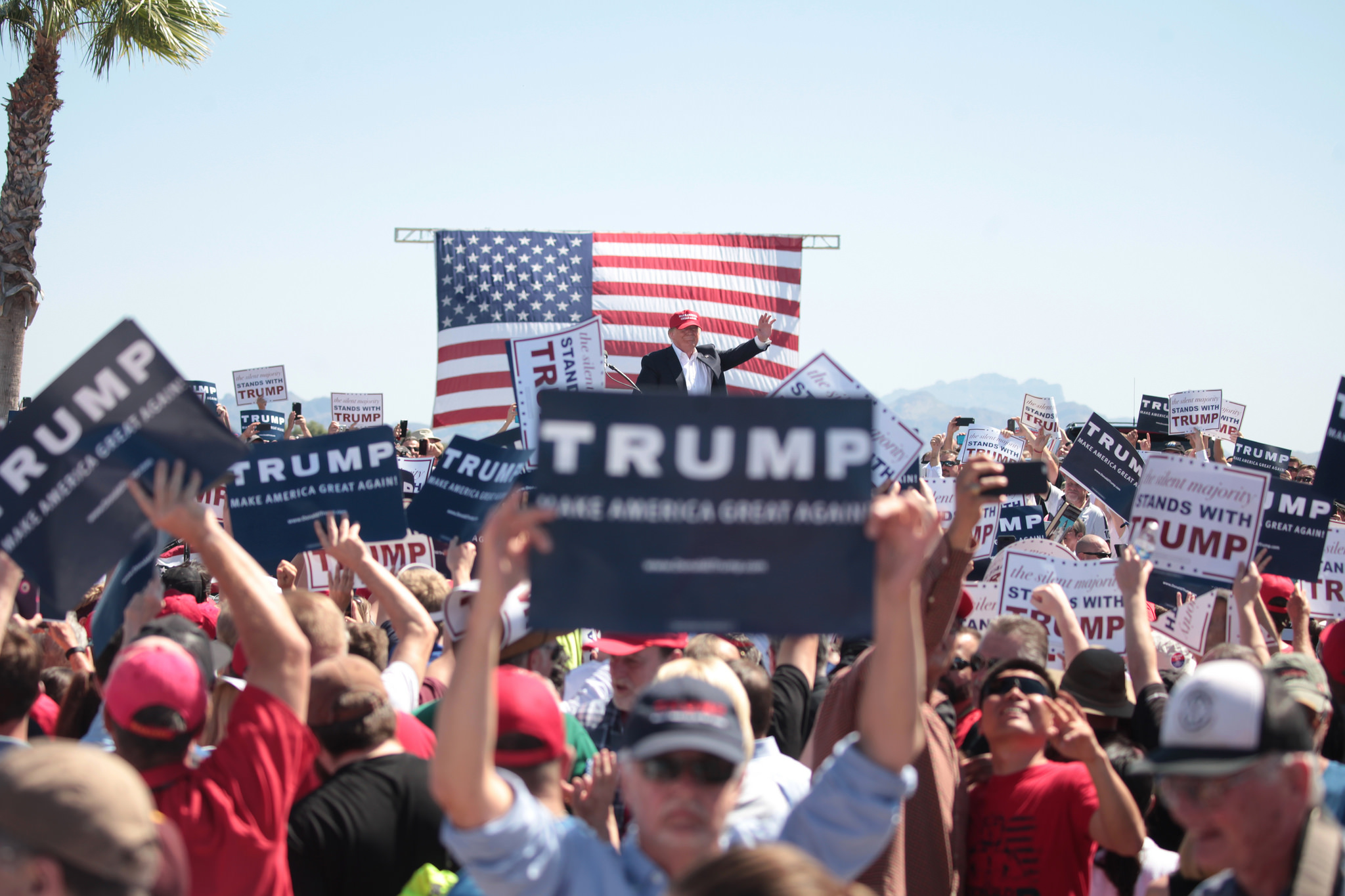Former Starbucks CEO Howard Schultz, one of three billionaires considering a run for president in 2020, has announced a cross-country tour this year to promote his new book, From the Ground Up: A Journey to Reimagine the Promise of America.
Schultz’s proposed reimagining fits squarely into what Sarah Churchwell has identified as a century-long effort by Americans to articulate a set of national values in public discourse and to stake out a shared philosophy. In her new book, Behold, America: The Entangled History of “America First” and the American Dream, Churchwell tracks the origin, changing meanings, and usage of two of the most heavily encoded phrases in the national vocabulary during the first 45 years of the 20th century.
Trump looms large in the background. As the author reminds us in her first sentence, Trump opened his 2016 campaign by declaring that “The American dream is dead.” And his supporters — underpaid, precariously employed and largely ignored citizens — clearly agreed with him.
But according to Churchwell, the dream declared dead by Trump is not at all the same as when it first emerged in the national political discourse. She locates its first use in the 1895 funeral oration for Ulysses S. Grant, from which she derives her book’s title. In that ceremony, the orator linked the American dream to “the fulfillment of (America’s) philosophy,” including equal laws and free institutions and opportunities.
Working from articles, sermons, newspaper editorials, speeches, letters and literature, Churchwell shows that, for the first part of the last century, the American dream was about liberty, justice and equality, in contrast to the danger to the republic coming from the corrosive power of excessive wealth.
A 1900 New York Daily Post editorial warned at length about “discontented millionaires, dissatisfied by the notion of equality,” whose disdain for the Constitution and whose demands for differential treatment “would be the end of the American dream.” The editorial was reprinted in papers across the country.
According to Churchwell, “the phrase was used to talk about stopping the rich and powerful from destroying democratic equality and economic opportunity for all.”
But, she argues, it was a fluid, shifting concept from the start, used in many different ways. Intellectual Walter Lippman stretched it to include the illusions he believed undermined democracy. He disparaged an American dream of endless progress and the enduring faith in the wisdom of the common, uneducated simple man.
By the Second World War, references to the American dream associated with protecting democracy and collective wellbeing took a back seat to the promise of upward social mobility — that every individual could better himself with hard work and a little luck in the land of opportunity.
This is what it is taken to mean today.
Trump’s fix for the death of the dream is “America First” — a political slogan that was discredited in the middle of the last century because it was used by American fascists. The phrase sank below the surface when the war effort made any discussion of isolationism a non-starter, and it was largely dormant until revived by Pat Buchanan in his presidential run.
“America First” was first coined by President Woodrow Wilson in the lead-up to his 1916 presidential re-election campaign and was such a compelling phrase that his Republican challenger campaigned on it too.
Although the core meaning was isolationism, the slogan’s gravitational pull quickly attracted accretions of xenophobia, ethnic intolerance, assimilationism, racism, and anti-Semitism. It was never confined to foreign policy and trade protectionism. Wilson himself joined the slogan to criticism of so-called “hyphenated Americans” — encouraging citizens to harass anyone, especially Germans, who they viewed as insufficiently loyal. By 1920 a resurgent KKK had claimed “America First” as a foundational principle in their own membership drives.
As in Paradise Lost, where Milton’s descriptions of Satan and the rebel angels are a lot more interesting than the poetry about the heavenly host, Churchwell’s chapters on America First are more riveting than the meandering definitions of the American dream.
Along the way, she brings in Hearst’s media campaign against the U.S. entry into the Second World War; lynching; homegrown fascist groups like the Silver Shirts, and the Knights of the White Camellias; One Hundred Percent American societies; and Huey Long. She describes the role of pilot Charles Lindbergh as a leading voice on America First Committee, and that of the courageous journalist Dorothy Thompson, who called out American fascism.
Chartwell’s account is full of eerie echoes: Wilson warning about fake news, editorials complaining about the richest 1%, and accusations that presidential candidate Warren Harding had an African-American ancestor all lead to a feeling that history is repeating itself.
But the book is a reminder that Trump’s use of “America First” as a dogwhistle, invoking all its nastiness, is not unique in the country’s national history, and may yet be challenged by a new vision of where America should head. In the context of Behold, America, the Trump presidency appears less an aberration than a waystation on the long American road to a shared national philosophy.
Mary Rowles worked in the Canadian labour movement for 33 years. She resides on B.C.’s Saltspring Island and qualifies as one of Alberta premier Rachel Notley’s “unicorn jockeys.”
Image: Gage Skidmore/Flickr
Help make rabble sustainable. Please consider supporting our work with a monthly donation. Support rabble.ca today for as little as $1 per month!




